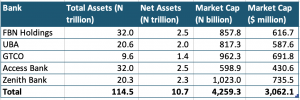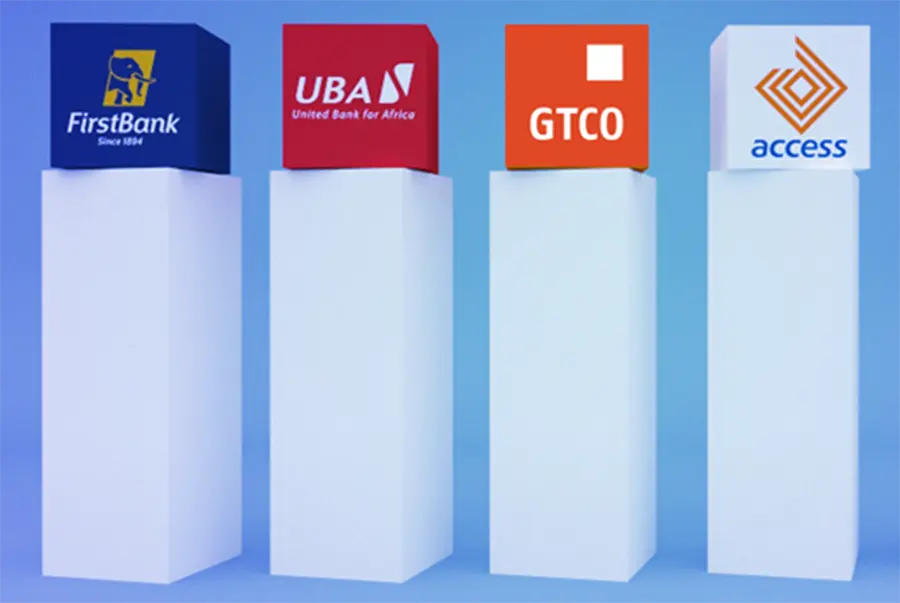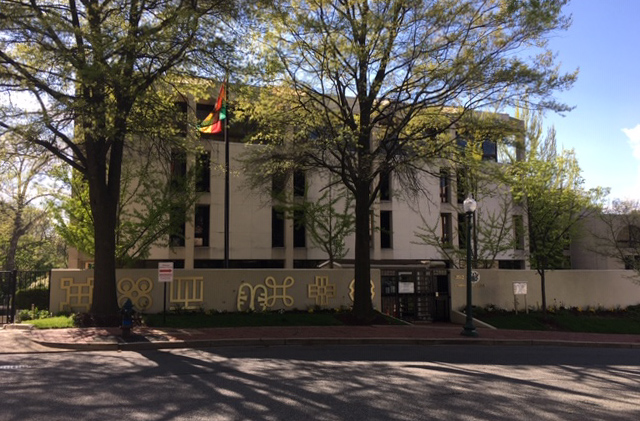
In April, Nigerian banks faced significant challenges as major banking stocks experienced losses month-to-date. This downturn aligned with the first month-to-date decline in the NGX All Share Index of the year, with a 6% loss in April alone.
The most impacted were the FUGAZ banks—First Bank, UBA, GTCO, Access Bank, and Zenith—although Zenith remained the only one to maintain its position in the SWOOT (Stocks Worth Over One Trillion Naira) index.
As of December 2023, Nigeria’s largest banks had a total net asset value of N9.7 trillion but only a combined market capitalisation of N4.2 trillion ($ billion), translating to a price-to-book ratio of 0.43, or 43%, indicating significant undervaluation by investors compared to their book values.
Challenger banks like Opay and Kuda Bank are valued above $1 billion despite their minor operational scales.
According to the Nairametrics SWOOT Index, FBN Holdings, UBA, GTCO, and Access Bank each fell below the trillion naira market cap as of April, a level they last exceeded in January.

For instance, Access Bank, Nigeria’s largest bank by assets, saw its market cap fall to about N598.9 billion by the end of April despite having over N32 trillion in total assets and N2.5 trillion in net assets.
Similarly, UBA, with total assets and net assets of N20.6 trillion and N2 trillion, respectively, saw its market cap drop from over N1 trillion in January to N817.3 billion at April’s end.
FBN Holdings, Nigeria’s oldest bank, peaked just above N1 trillion in early April but fell to N857.8 billion by April 30th, 2024.
GTCO also experienced a dip; valued above N1 trillion as recently as April 26th, it ended the month with a market capitalisation of N962.3 billion.
Zenith Bank, however, remained in the SWOOT, though it risks dropping below if the sell-offs continue into May 2024, with total and net assets of N20.3 trillion and N2.3 trillion, respectively.
Several factors contribute to these low valuations relative to net assets despite consistent dividend payouts. Some analysts attribute it to the high liquidity of bank stocks. In contrast, others point to a general disinterest in the Nigerian stock market, suggesting that intrinsic stock values are seldom reached.
A more recent factor is the banking recapitalisation announcement by the apex bank, which requires banks to raise over N4 trillion in new capital. This has likely prompted a sell-off, as lower share prices benefit bank shareholders when the capital increase is through a rights issue.
Read: Eleme Fire: East-West Road rehabilitation not the cause of accident – Minister of Works
About The Author
Related Articles
Cotê D’Ivoire: Thousands Rally in Abidjan as Opposition Demands Electoral Reforms Ahead of October Election
Thousands of opposition supporters gathered in Abidjan on Saturday, May 31, to...
ByJoy ChukwuJune 1, 2025Togo Stops Issuing Mining Permits to Reform Outdated Mining Code
Togo has suspended the issuance of new mining permits for prospecting and...
ByJoy ChukwuJune 1, 2025ICYMI: Ghana Shuts Down Washington Embassy Over Visa Fraud Scandal
Ghana has temporarily closed its embassy in Washington, D.C., following the uncovering...
ByJoy ChukwuMay 31, 2025Confederation of Sahel States Moves to Establish Joint Judicial Body
The Confederation of Sahel States (CSS), comprising Mali, Niger, and Burkina Faso,...
ByJoy ChukwuMay 31, 2025












